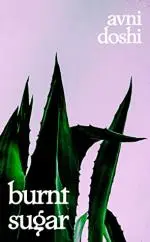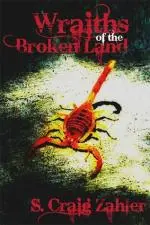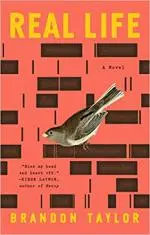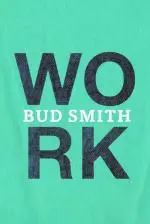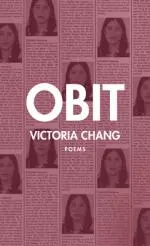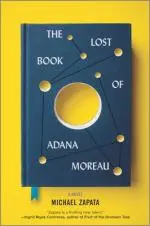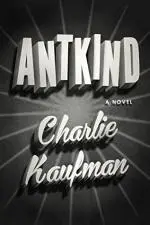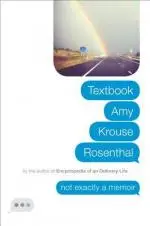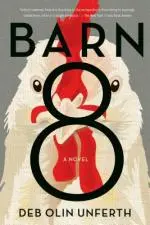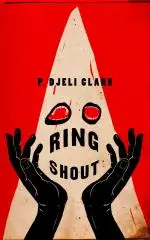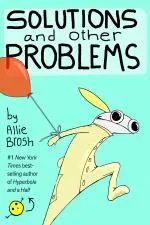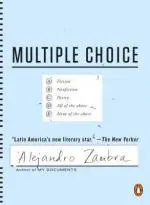I like “experimental” novels about as much as the next guy, and because I’ve never been in an MFA class, “the next guy” hates experimental novels.
What I DO like are books that push the novel into new and interesting territory without being all showy about it. Books that read like good books, and while they're at it, they widen the boundary just a little.
The novel needs to change or die. Here are some people fighting to keep it alive, and listed with each author is a book that exemplifies how.
![]() "Raised in Captivity" by Chuck Klosterman
"Raised in Captivity" by Chuck Klosterman
I talk about Chuck Klosterman so much that I owe my girlfriend a small amount of money every time I bring him up in conversation. I’m not sure if she’s tired of hearing about him and wants me to stop, or if she’s okay with it because it’s such a lucrative side hustle.
Klosterman is writing fiction in a non-fictional way. This is hard to describe. The best I can do is to say that he takes a premise, varying from mild to wild, and then every other aspect of the story is spooled out in a non-fictional, logical way. One way to save the novel might be to give it some non-fiction, journalistic, objective flavor.
Get Raised in Captivity at Bookshop or Amazon
![]() "Burnt Sugar" by Avni Doshi
"Burnt Sugar" by Avni Doshi
Whenever the reviews of something are all 1-star or 5-stars, you should check it out.
This one gets mixed, but passionate, reviews because the narrator is honest, bitter, and unlikable. Readers who like to think of characters as their buddies will hate, hate, hate this book.
If you subscribe to the theory that unlikable female characters are unwelcome in fiction, and that they aren’t marketable, and if you don't like that fact, Burnt Sugar is the chance to put your money where your mouth is.
Get Burnt Sugar at Bookshop or Amazon
![]() "Wraiths of the Broken Land" by S. Craig Zahler
"Wraiths of the Broken Land" by S. Craig Zahler
Zahler writes pulpy, violent books that are straight out of the 70s.
How is doing something from the past “redefining” the novel? Because writing books that feel like they came out of the 70s takes a certain bravery in the current age. Some would call it “a certain cultural backwardness,” and that’s their prerogative.
Zahler:
I hope people enjoy [my books and movies], but I’m not going to make different creative choices so that more of them do.
For me, that's the sweet spot. That's what I want to hear from more writers.
Get Wraiths of the Broken Land at Bookshop or Amazon
![]() "Real Life" by Brandon Taylor
"Real Life" by Brandon Taylor
Real Life depicts a lot of what’s being talked about anti-racism non-fiction, but it takes a different stroll. It has an interior vulnerability that’s not always present in non-fiction, especially in men, especially in books meant to serve as activism, where vulnerability can work against the goal.
Real Life is an experience from the perspective of a young, gay, black man without a lot of "And then he learned" and "The moral is..." tacked on, leaving the reader to do the work, forcing the reader to reach for conclusions instead of outlining them completely. That's a way the novel can continue and advance a difficult conversation, and that's a way for the novel to retain meaning separate from non-fiction.
Fiction feels more open to critique, interpretation, discussion, and varying opinions. It feels acceptable to talk about Real Life as a book, as a piece of narrative art, where non-fiction books on the topic of anti-racism feel unassailable, and the boundaries for acceptable conversation and ideas around them are narrow.
Get Real Life at Bookshop or Amazon
![]() "Work" by Bud Smith
"Work" by Bud Smith
Bud Smith works a blue collar job, and a lot of his stuff is written on his phone when he’s got a few spare minutes. And in the best possible way, his books feel like it.
Bud is taking the novel, this hoity-toity thing, and handing it back to everyone. He’s very much of the “If I can do this, so can you,” attitude. That’s what we need. Fewer novels tortured out of an antique typewriter that someone overpaid for, more books tapped out on a phone while you’re waiting for someone to unload a trailer.
Get Work at Amazon
![]() "Obit" by Victoria Chang
"Obit" by Victoria Chang
Obit is a series of obituary poems for things the author lost after her mother's death. Fiction needs to learn from poetry. Fiction needs to take what’s going on in poetry and run with it. Fiction needs to understand the frozen moment the way poetry does. And fiction writers, a small piece of advice: sell a book of poems first. Poetry is subjective and small, and it’s a great foothold in the publishing world.
Get Obit at Bookshop or Amazon
![]() "The Lost Book of Adana Moreau" by Michael Zapata
"The Lost Book of Adana Moreau" by Michael Zapata
A book within a book is nothing new, but it's possible that this sort of book, which revels in the joy of books, is the path forward for the novel. Maybe the novel's future is as a niche-interest object, something like vinyl records. Maybe a deep dive into fandom keeps the novel alive, even if it's alive for a smaller number of people. Maybe books written not just for readers, but for truly devoted book lovers, are the answer.
Get The Lost Book of Adana Moreau at Bookshop or Amazon
![]() "Antkind" by Charlie Kaufman
"Antkind" by Charlie Kaufman
Even though it'll make me sound simple, I’m going to admit, I thought the I’m Thinking of Ending Things movie adaptation was a huge piece of shit. I admit that because there are others like me out there, and I want to tell them: Don’t give up on Charlie Kaufman. Antkind is a divisive, damn strange book. You'll find that people who hate it have an easy time crystallizing their hate, but people who love it, pro reviewers who are used to condensing this kind of shit, have a damn difficult time putting their love into words. There is something special and unusual going on here.
Get Antkind at Bookshop or Amazon
![]() "Textbook" by Amy Krause Rosenthal
"Textbook" by Amy Krause Rosenthal
Textbook was the first interactive book I’ve read with the possible exception of a Chuck Klosterman book that, in its original run, contained the author’s phone number (at the time of publication, he was of small enough notoriety and the technological age hadn’t really hit yet, so this was less insane than it sounds. Also, if my partner reads this, I now owe her money).
Amy dabbles in the close-to-gimmick books, but what makes her shit work is that the gimmick draws you in, and then the folksy, pleasant, fun experience of reading keeps you close. Textbook is a good read, even if you don’t interact with it. Encyclopedia of an Ordinary Life is a very fun read, a collection of anecdotes given shape, even if you don’t care for the conceit.
Amy sadly passed a few years ago, but hey, I think her work is still changing the novel, showing writers and readers that you can reconsider how the novel works without being fartsy about it.
Get Textbook at Bookshop or Amazon
![]() "Barn 8" by Deb Olin Unferth
"Barn 8" by Deb Olin Unferth
I mostly snuck this one in here because LISTEN UP, CITY PEOPLE WITH BACKYARD CHICKENS: You don’t need a rooster. They’ll make noise all damn day. Google “Buy sexed chickens [your state]” and stop being an asshole. Petfinder is full of roosters born on backyard farms because some dumbass didn’t understand how chickens and eggs work.
Also, dope-ass book, writer who pushes the boundaries, and so on.
Get Barn 8 at Bookshop or Amazon
![]() "Ring Shout" by P. Djèlí Clark
"Ring Shout" by P. Djèlí Clark
With Get Out, everybody wants to talk about how it's a meditation on this and that, because everyone has to prove they're smart and that they got it, and the unfortunate thing is that they miss out on talking about how kooky (in a great way) the plot is. It's something Stuart Gordon totally would've done.
Ring Shout is the Get Out of horror novels, a book that takes a patently ridiculous concept, ties it to a modern social issue to give it heft, and then that weight transfers back to the horror genre. Pretty smooth. It's also like Get Out because everyone is tripping so hard over each other, trying to be the first one to talk about how it's "the perfect book for this moment," and what that means culturally, that they too often forget to talk about what a wild ride it is.
If Get Out is a revolution on the screen, Ring Shout is its equal, maybe even better, on the page.
Get Ring Shout at Bookshop or Amazon
![]() "Solutions and Other Problems" by Allie Brosh
"Solutions and Other Problems" by Allie Brosh
Allie Brosh’s books are the best mash-up of novels and meme culture committed to paper. Others have tried, others have succeeded, but none of them are as good as Allie Brosch.
What’s really subversive is the blend of the hilarious and the heartbreaking. There are really painful moments in this book, and there are laughs to be found INSIDE those moments.
Allie Brosch mashes up the fast, in-the-moment, memetic culture of the internet with a deep authenticity and heartbreak. She's one of the few delivering what the internet has promised.
Get Solutions and Other Problems at Bookshop or Amazon
![]() "Multiple Choice" by Alejandro Zambra
"Multiple Choice" by Alejandro Zambra
We don't talk about novels enough. We don't argue about them, read them as families and friend groups. This isn't the fault of the novel, it's just that with so many novels out there, and because each novel takes the time of 5 or 6 movies, having a common set of books you've read along with someone else is unlikely if not impossible.
Multiple Choice begs you to read along with someone else and compare answers. Multiple Choice is an incomplete reading experience until you go through it with someone else. This is the sort of thing that keeps people talking about novels, and people talking about novels keeps them alive.
Get Multiple Choice at Amazon

About the author
Peter Derk lives, writes, and works in Colorado. Buy him a drink and he'll talk books all day. Buy him two and he'll be happy to tell you about the horrors of being responsible for a public restroom.
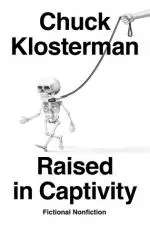 "Raised in Captivity" by Chuck Klosterman
"Raised in Captivity" by Chuck Klosterman
